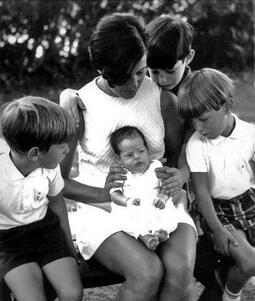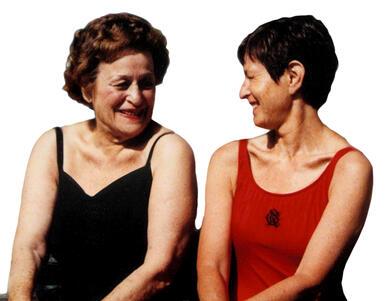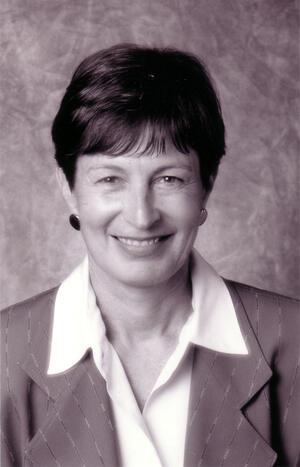Belda Lindenbaum
It was Blu Greenberg and my own smart and provocative mother who brought feminist ideas into my Jewish life.
” – Belda LindenbaumWhere have you come from and where are you going? This is a famous question posed in the Torah by a messenger of God to Hagar, Abraham’s handmaiden. It is a question that we who are involved in the Jewish feminist movement ask ourselves and each other, and I am sure that it is the burning question that the larger Jewish community is asking about us.
Where do I come from? I was a late bloomer with respect to feminism, Jewish or otherwise. At the age of 29, my personal bio would have read: married, three sons, a newborn daughter, frum (religious; literally, “pious”) from birth, modern Orthodox, and the product of a co-ed Jewish day school. Despite my history, my religious life was all ritual with little meaning, and I had stopped attending synagogue. I felt invisible and superfluous there, and filled with an unease I couldn’t name. It was my husband who provided my wake-up call when he prodded me by asking, “What will you teach your daughter? What will you show her?”
I returned to the synagogue because of my daughter and a second who followed her, but with a new sense of purpose. I was determined to work for change in the status of women in all areas of Jewish life. The secular feminist movement and women like Betty Friedan certainly influenced me and helped me to understand the unease I had felt. But it was Blu Greenberg and my own smart and provocative mother who brought feminist ideas into my Jewish life. They helped me to question the role of Jewish women in our synagogue and communal lives, and they helped me to become an activist for change. I doubt that my mother saw herself as a feminist, but in the way that she interpreted Jewish texts, in her challenge to have her name and her voice included with my father’s at communal events, in her strong, fearless, and commanding persona, she represented the best of feminism to me.
Where have I come from and where am I going? My mother, myself, and my two daughters represent the “chut hameshulash,” the threefold chain that cannot be broken, that chain of feminist thought and action which will extend to future generations until equity and justice for women become a Jewish religious norm.
Belda Kaufman Lindenbaum was President of the board of Drisha Institute for Women in New York City, Vice-President of the Jewish Orthodox Feminist Alliance, and a founding board member of Yeshivat Maharat. She was also a board member of Ramaz Day School and Bar Ilan University. With her husband Marcel and Rabbi Shlomo Riskin, she co-founded Midreshet Lindenbaum in Israel, which is a post-high school learning center for diaspora women and a Yeshivat Hesder (combining study with military service) for Israeli women. Lindenbaum was the mother of five children, all married, and the proud grandmother of 18 and still counting.






